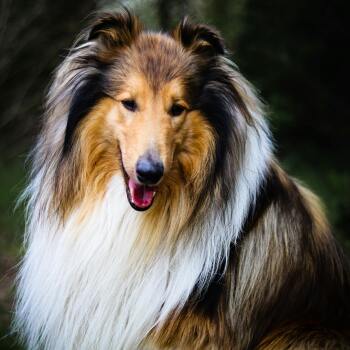Shetland Sheepdogs

Shetland Sheepdogs: Smart, Sweet, and Always Watching
If you’ve opened your heart and home to a Shetland Sheepdog—more lovingly known as a Sheltie—you already know you’ve got a devoted companion with a sharp mind and an even bigger heart. These elegant little herders are packed with personality and purpose, making them a top choice for families, seniors, and singles alike.
Why We Love Shelties
- Loyal to the Core: Shelties form incredibly strong bonds with their families. They're affectionate, eager to please, and happiest when they're part of the action—whether it's a walk, a cuddle, or a game of fetch.
- Brilliant and Trainable: With intelligence that rivals many larger breeds, Shelties pick up new commands quickly. Positive reinforcement training brings out their best, and they excel in everything from agility courses to therapy work.
- Watchdog Instincts: Though small in size, Shelties are alert and vocal. They’ll let you know if something’s out of the ordinary, making them excellent little guardians of the home.
- Agile and Energetic: Don't let their fluff fool you—Shelties are nimble and athletic. They love having a job to do and thrive when mentally and physically stimulated.
Challenges to Consider
Shelties can be shy with strangers and may bark more than average—especially when bored. Their strong herding instincts might also lead them to chase cars or small pets without proper training. Daily walks, interactive toys, and quality time are essential to keeping your Sheltie healthy and well-behaved. And let’s not forget that double coat—it’s gorgeous, but it requires regular brushing to prevent matting.
From Scottish Isles to American Backyards
Shelties descend from Collies in the Shetland Islands, where their small size and smarts made them ideal for herding sheep and protecting farms. Over time, they’ve evolved into one of the most beloved breeds in the U.S., thanks to their charm, intelligence, and loving personalities. With an average lifespan of 12–15 years, a well-cared-for Sheltie offers years of loyal companionship.
Health Concerns in Shetland Sheepdogs
- Heart Conditions: Patent Ductus Arteriosus (PDA)— This congenital defect occurs when a fetal vessel fails to close after birth, allowing blood to flow abnormally to the lungs. Symptoms include coughing, fatigue, or hind limb weakness. A telltale heart murmur during exams can lead to early diagnosis, and corrective surgery is typically very successful.
- Bleeding Disorders: Hemolytic Anemia, Thrombocytopenia & Von Willebrand’s Disease— These disorders affect the body’s ability to form clots and fight off bleeding. Symptoms include pale gums, bruising, or excessive bleeding after injury. Blood clotting tests and DNA screenings are essential before surgeries, and treatment often includes steroids or transfusions in severe cases.
- Eye Health: Cataracts, Distichiasis & Collie Eye Anomaly— Shelties are prone to several eye conditions. Cataracts cloud the lens and can be treated surgically if needed. Distichiasis involves extra eyelashes that irritate the eye, which may require removal. Collie Eye Anomaly is inherited and can lead to vision loss—screening before breeding is essential.
- Autoimmune Skin Disease: Lupus— Lupus can affect the skin, joints, and internal organs. Symptoms include lesions on the nose or face, joint pain, or fatigue. Though there’s no cure, treatment with medication and limited sun exposure can help manage the disease.
- Epilepsy— Shelties may experience reactive, secondary, or idiopathic seizures. These usually begin between 6 months and 3 years of age. Most cases require lifelong medication and regular monitoring. If your Sheltie experiences a seizure, keep them safe and call your vet right away.
- Joint Issues: Hip Dysplasia, Elbow Dysplasia & Patellar Luxation— These inherited conditions can lead to arthritis and discomfort as your Sheltie ages. Signs include limping, difficulty getting up, or hopping during movement. Diagnosis is typically via X-ray, and treatment ranges from supplements to surgery.
- Dermatomyositis (Juvenile Skin Disease)— This inflammatory condition causes skin lesions and muscle inflammation in young Shelties. While manageable with medication, affected dogs should not be bred.
- Allergies (Atopy)— Instead of sneezing, dogs itch! Shelties with atopy often lick their paws, rub their faces, or battle recurring ear infections. Treatment options include antihistamines, medicated shampoos, and sometimes allergy testing.
- Thyroid Trouble: Hypothyroidism— Signs of low thyroid function include dry skin, hair loss, weight gain, and sluggish behavior. An annual blood test is the best way to catch and manage it early with a daily pill.
- Fanconi Syndrome: Kidney Disease— This inherited condition impairs the kidney's ability to absorb nutrients. Signs include excessive thirst, urination, weight loss, and weakness. Early urine screening is key, and treatment varies depending on severity.
- Hemorrhagic Gastroenteritis (HGE)— This serious gastrointestinal condition can cause bloody diarrhea, vomiting, and dehydration. HGE progresses quickly and is most common in small breeds like Shelties. If you notice symptoms, get to the vet immediately—early intervention can be lifesaving.
Shelties: Big Hearts in Small, Fluffy Packages
If you’re ready for a loyal sidekick with brains, beauty, and boundless energy, a Sheltie might just be your perfect match. With the right care, this breed gives back tenfold in affection, intelligence, and lifelong friendship.
Ready to Learn More? We’re Here to Help!


